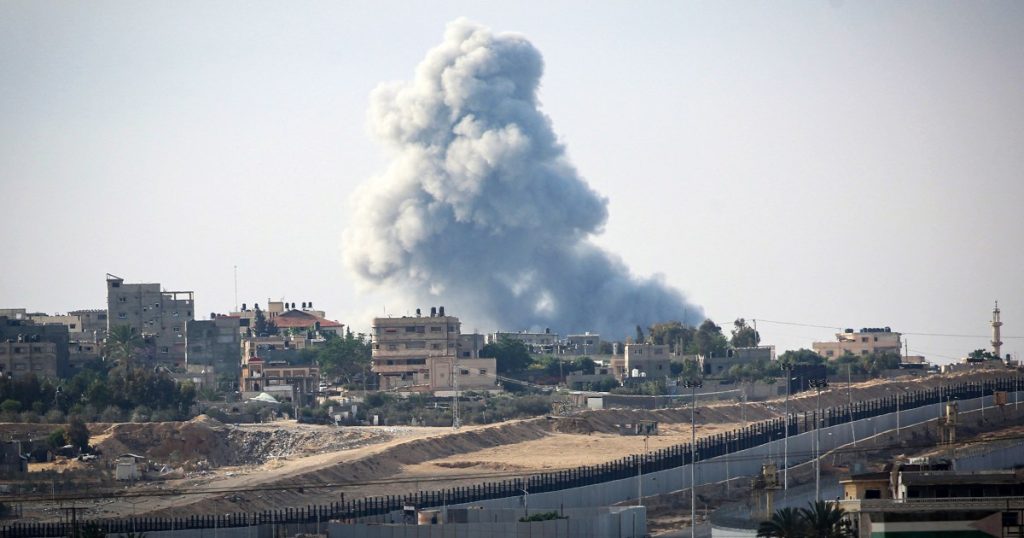The United States has been closely monitoring the troop movement around Rafah, with officials stating that a larger incursion may be days or weeks away. The U.S. has been urging Israel to exercise caution in any potential offensive in Rafah and to take appropriate humanitarian measures. Secretary of State Antony Blinken has warned that a full-scale ground assault on Rafah would not lead to the elimination of Hamas and that even with heavy action, there would still be armed Hamas fighters remaining.
The situation in Rafah has led to nearly 360,000 people fleeing the area following partial evacuation orders by Israel and the deployment of tanks. The United Nations has expressed alarm over the potential for a full-scale Israeli military operation in Rafah and has emphasized the lack of safe places for the evacuated residents to go. The UN human rights chief has called for the prevention of a full-scale offensive on Rafah due to the significant impact it would have on the civilian population.
President Joe Biden has made it clear that the U.S. will not provide offensive weapons to Israel if it proceeds with an invasion of Rafah. This decision has caused concern and anger among some Israeli officials, highlighting the complexities of the situation and the divided opinions on the appropriate course of action. Despite the potential for further escalation, the U.S. continues to advocate for restraint and humanitarian considerations in any military operations in Rafah.
The ongoing tensions and military movements in Rafah have raised concerns about the humanitarian situation and the safety of civilians in the area. With a significant number of people already fleeing the region, the possibility of a full-scale offensive poses a serious threat to the wellbeing of the population. The refugee crisis resulting from the conflict further complicates the situation, highlighting the urgent need for international intervention and support to prevent further humanitarian disaster.
The statements and actions of U.S. officials and President Biden reflect the country’s stance on the Israeli military operations in Rafah. The emphasis on avoiding civilian casualties and ensuring humanitarian aid to those affected by the conflict demonstrates the commitment to upholding international humanitarian law and protecting vulnerable populations. The U.S. continues to engage diplomatically to address the crisis and prevent further escalation of violence in the region.
Overall, the developments in Rafah underscore the complexity of the Israeli-Palestinian conflict and the challenges of finding a peaceful resolution. The involvement of international actors, such as the United States and the United Nations, highlights the importance of multilateral efforts to address the crisis and protect human rights. The ongoing situation in Rafah serves as a reminder of the urgent need for a comprehensive and sustainable solution to the conflict to ensure the safety and wellbeing of all those affected by the violence.


